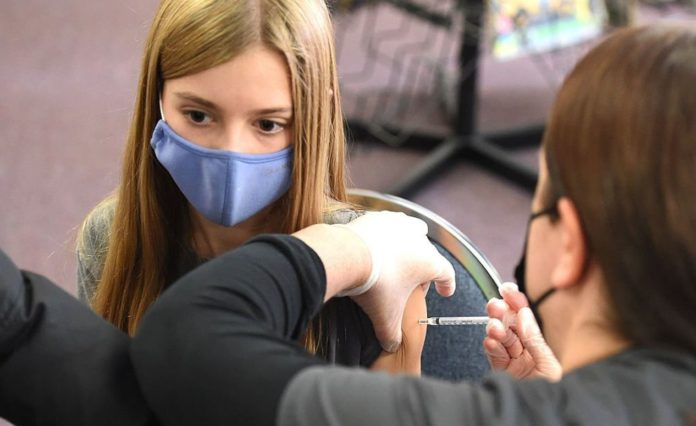“Binding and Neutralizing Antibody Responses to SARS-CoV-2 in Very Young Children Exceed Those in Adults,” says new study.
Infants and toddlers who were exposed to SARS-CoV-2, the coronavirus that causes COVID-19, had significantly higher levels of antiviral antibodies than adults, says new research published today and the Johns Hopkins Bloomberg School of Public Health researchers in collaboration with the US CDC.
New research reveals that children who have been exposed to SARS-CoV-2 tend to develop high antibody responses.
This study included samples from 682 children and adults in 175 Maryland households who had not yet received the COVID-19 vaccine and were enrolled in a household surveillance study of SARS-CoV-2 infection. Enrollment samples were collected between November 2020 and March 2021, with participants ranging in age from 0 to 62 years old.
At the time of enrollment, the researchers discovered evidence of SARS-CoV-2 antibodies in 56 people, implying prior infection with the virus. 15 kids aged 0 to 4 years, with the smallest being three months old; 13 children ages 5-17 years; and 28 adults ages 18 and up were among the 56 persons with antibody evidence of past SARS-CoV-2 infection. Children had substantially greater levels of antibodies against a critical region on the virus’s outer spike protein called the “receptor-binding domain” (RBD) than adults: more than 13 times higher in children aged 0-4, and over 9 times higher in children aged 5-17. SARS-CoV-2 neutralizing antibodies were nearly twice as high in children ages 0-4 as they were in adults, which could help predict protection against severe COVID infection.
Children aged 0-4 years showed the highest levels of SARS-CoV-2 RBD and neutralizing antibodies of all infected household members in most households where both children and adults had antibody evidence of SARS-CoV-2 infection.
“This study demonstrates that even children in the first few years of life have the capacity to develop strong antibody responses to SARS-CoV-2 infection, which in some cases exceed adult responses,” adds Ruth Karron, lead investigator.
Karron and colleagues created the SARS-CoV-2 Epidemiology And Response in Children (SEARCh) prospective household surveillance research to learn more about SARS-CoV-2 infection in children under the age of five, a population that has been understudied. Each household required to have at least one child aged four or younger and consent to an 8-month follow-up for evidence of SARS-CoV-2 infection in order to be included in the study.
The findings of the study revealed:
- Most families with SARS-CoV-2-positive children 0-4 years old and other people who were sick had high levels of anti-RBD and antibodies that could neutralize the virus.
- Antibodies against the SARS-CoV-2 (original Wuhan variant) spike protein RBD were found in 56 (8.2%) of the blood samples from 22 households (12.6%), indicating past infection with the virus. Children made up half of the 56 people who had previously been infected.Only approximately half of those with RBD antibodies had previously been advised by a health care practitioner that they might have SARS-CoV-2 infection, implying that many milder or asymptomatic SARS-CoV-2 infections in the population may go unnoticed and uncounted. No one in the research who had previously been suspected of having SARS-CoV-2 infection was hospitalized as a result of their infections.
“Very young children in our study developed high titers of antibody to the SARS-CoV-2 spike protein, which is the target antigen for COVID vaccines,” Karron adds.
SARS-CoV-2 antibody responses in infants and adults have received relatively little research. In a study of hospitalized patients, researchers discovered that adults produced significantly more neutralizing antibodies than children. Several community-based research, on the other hand, indicated that youngsters had strong responses. The findings of this study add to those of prior community-based research.
The Pfizer-BioNTech mRNA COVID-19 vaccine is presently available to children aged 5 to 17, and tests of the vaccination in younger children are ongoing.
Source: JCI Insight
Image Credit: Getty
You were reading: Children develop stronger antibody responses after COVID-19 infection than adults – CDC study finds
